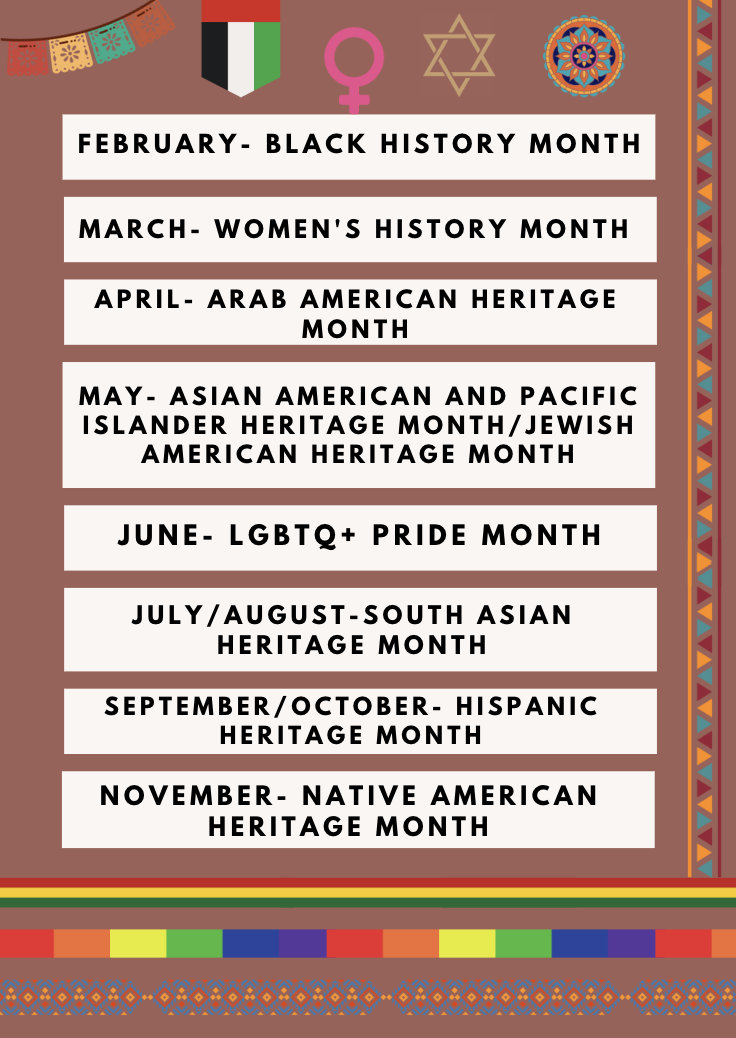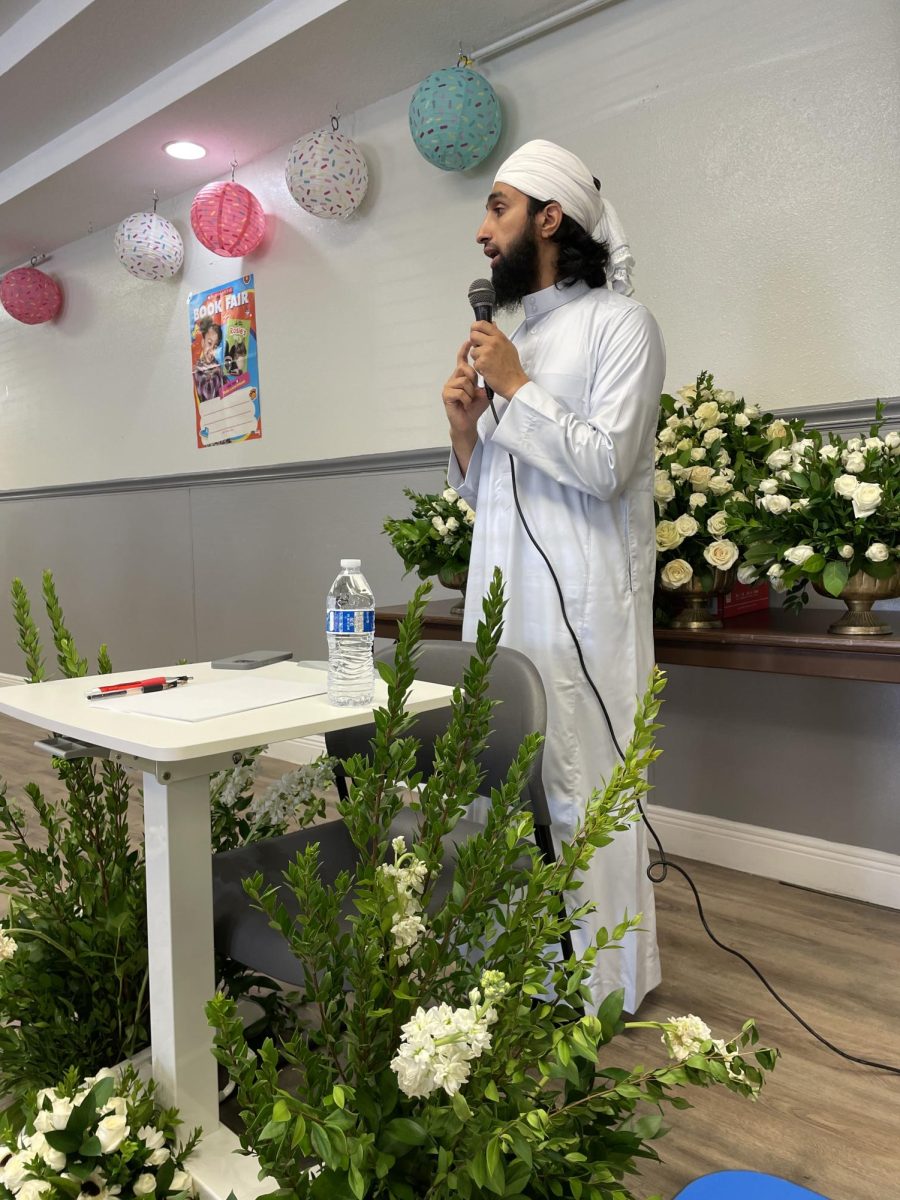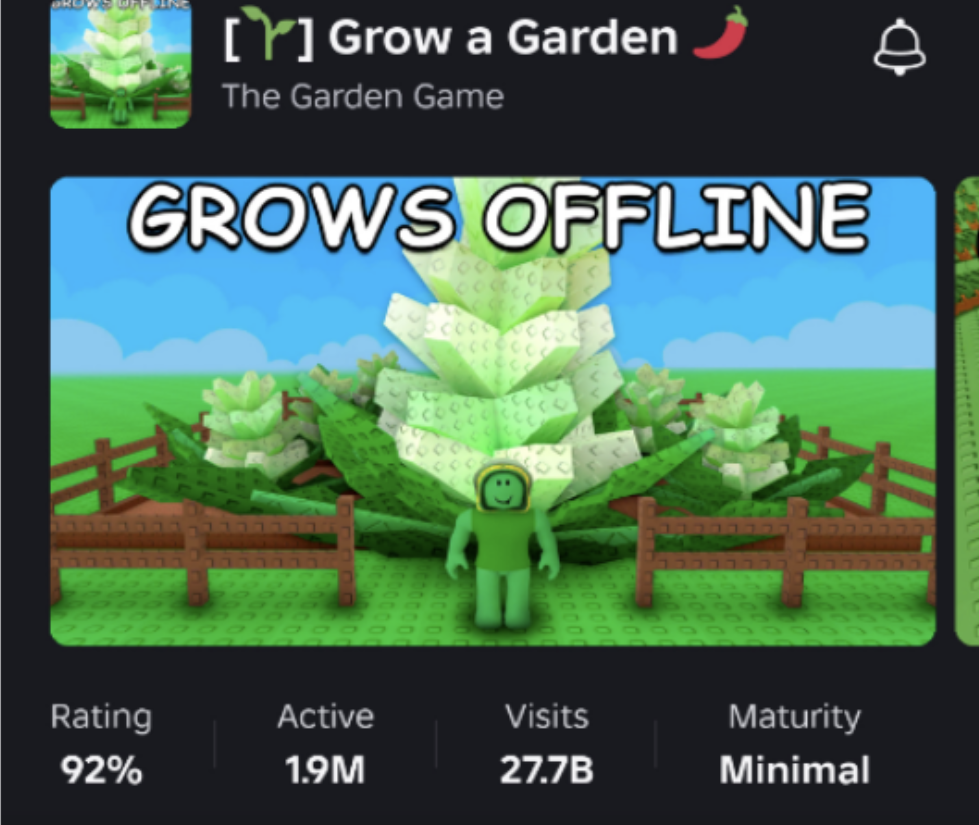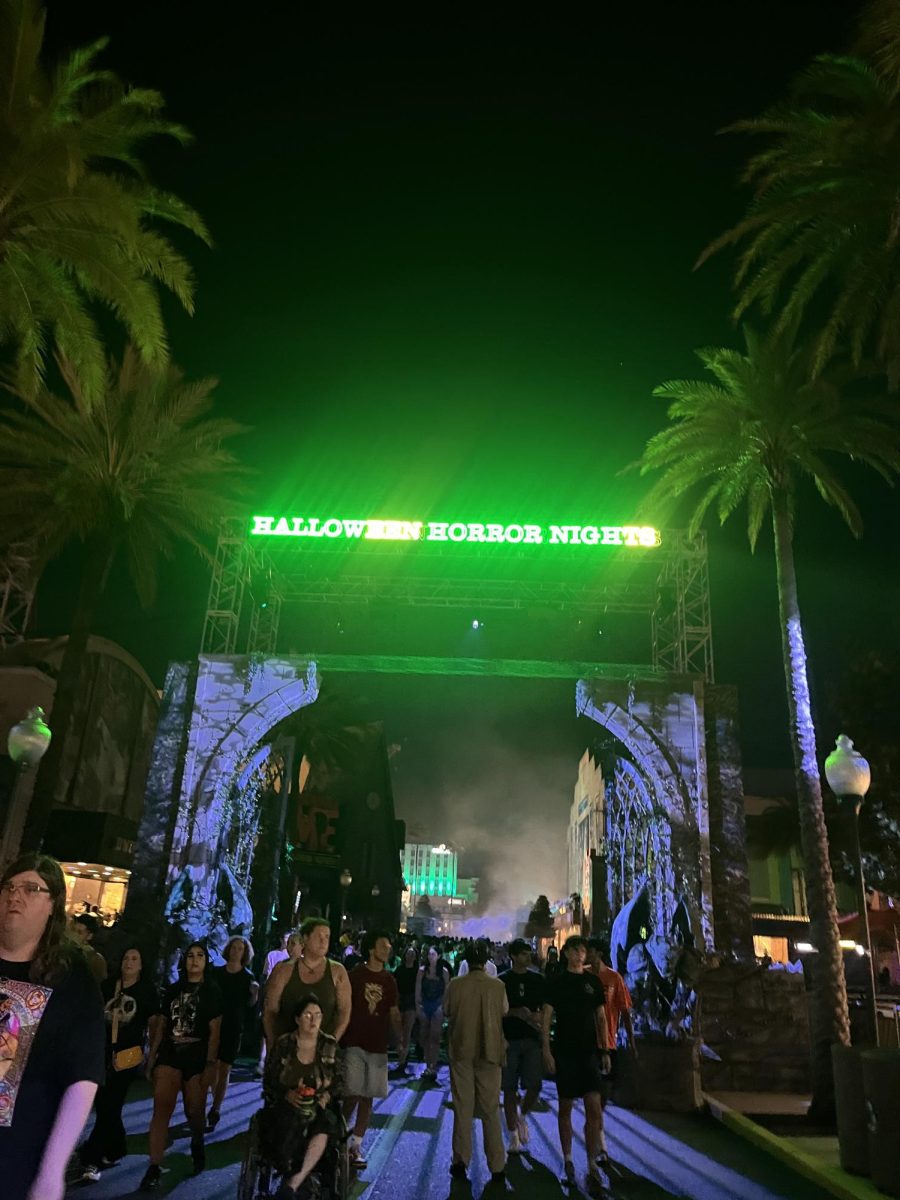In both 2023 and 2024, The Pew Research Center carried out a national survey to gather the opinions of American citizens on Diversity Equity Inclusion (DEI). From this poll, researchers gathered that, “Twenty-one percent of all respondents had a negative view of DEI in 2024, while 26 percent saw it as neither good nor bad,” according to statista.com. Included in the DEI initiative are what the majority of Americans commonly consider to be, “Heritage months.” The most prominent months extend from February, with Black History Month, all the way to November, with Native American Heritage Month. To many, these months are considered vital to fuel equal recognition of all societal groups, but with any so-called, “Controversial issue,” the opposing side begs to differ.
Much of the doubt that surrounds the importance of these months stems from the question of why cultural celebrations should be categorized into one month rather than celebrated year round. When asked to share her opinions on the matter, Mrs. Lauren Oliva, Assistant Director of Professional Development and Member Services on the Florida Council of Independent Schools, shared how, “The deliberate ‘pause’ created by heritage months is integral to meaningful recognition for these groups,” and elaborated by explaining how, “While it is essential to integrate the histories and contributions of minority groups into everyday learning and conversations, heritage months provide an opportunity to elevate these narratives with particular reverence.”
Although the majority of individuals celebrate heritage months for their long-term efforts to highlight the diversity of society, some feel cheated out of the equality they truly deserve. When met with terms like “Black History Month,” “Women’s History Month,” and “Pride Month” one would assume members of these communities would feel comfort and satisfaction in a sign of genuine appreciation for their principles. While this may be the common reaction, many individuals are left feeling undervalued, as though the battles they and their predecessors have fought are simply being acknowledged rather than fused into the history that students are taught in schools and remember for the rest of their lives.
When considering this issue, truth can be found in both sides of the argument. While in no way should the celebration of societal diversity be limited to a singular month, the beauty of heritage months lies in the fact that they are simply a step towards absolute equality. Instead of viewing heritage months as an attempt to completely dominate the recognition dedicated to different cultural groups, one must recognize that their true purpose is to work hand in hand with the ongoing fight for societal equilibrium.
Ms. Amanda Jones, English 9 Honors teacher, expertly captured this idea by emphasizing the importance of, “Highlighting the stories that may not have made the pages of our history books has value as a small step toward telling the story of humanity.” To some, the endless possibilities of diversity represent everything that makes each individual unique. No two people, two cultures, or two lives are the same, but no matter how different two individuals may be, some sort of connection can always be made between them. At our core, we are all simply human. On the opposing side of this argument are individuals who see diversity as a threat to their own culture rather than something to enrich it.
This conflict can be seen in today’s America as the country is currently at a crossroads. Specifically in relation to historical education, the battle between the right and left is heating up dangerously fast. President Donald Trump’s most recent course of action targeted Smithsonian museums and their honest display of American history by claiming that they are, “‘WOKE’” and, “‘OUT OF CONTROL,’” according to npr.org. This claim revolved around the Smithsonian’s dedication to remembering the horrors of slavery as a part of recognizing the African American community for their triumphs and accomplishments, even in the face of unimaginable adversity. Why the president takes offense to this recognition is not completely clear, but suggests that the very point of this historical exhibit has been missed. Controversial issues like slavery and cultural recognition aren’t meant to be used to pit one side of society or the political spectrum against the other, but rather provide all people with factual, uncensored accounts of the past.
History is taught so previous wrongdoings are not repeated by nations that wish to maintain their power as well as their morality. If the past is not remembered for all its truth, both good and bad, society risks forgetting the lessons learned through mistakes that have been made. Like the recognition of history, honoring, or at least accepting, heritage months must not become selective and biased based on politics or personal orientation, but rather on the principle that we are all humans who deserve the opportunity to learn and celebrate.










































